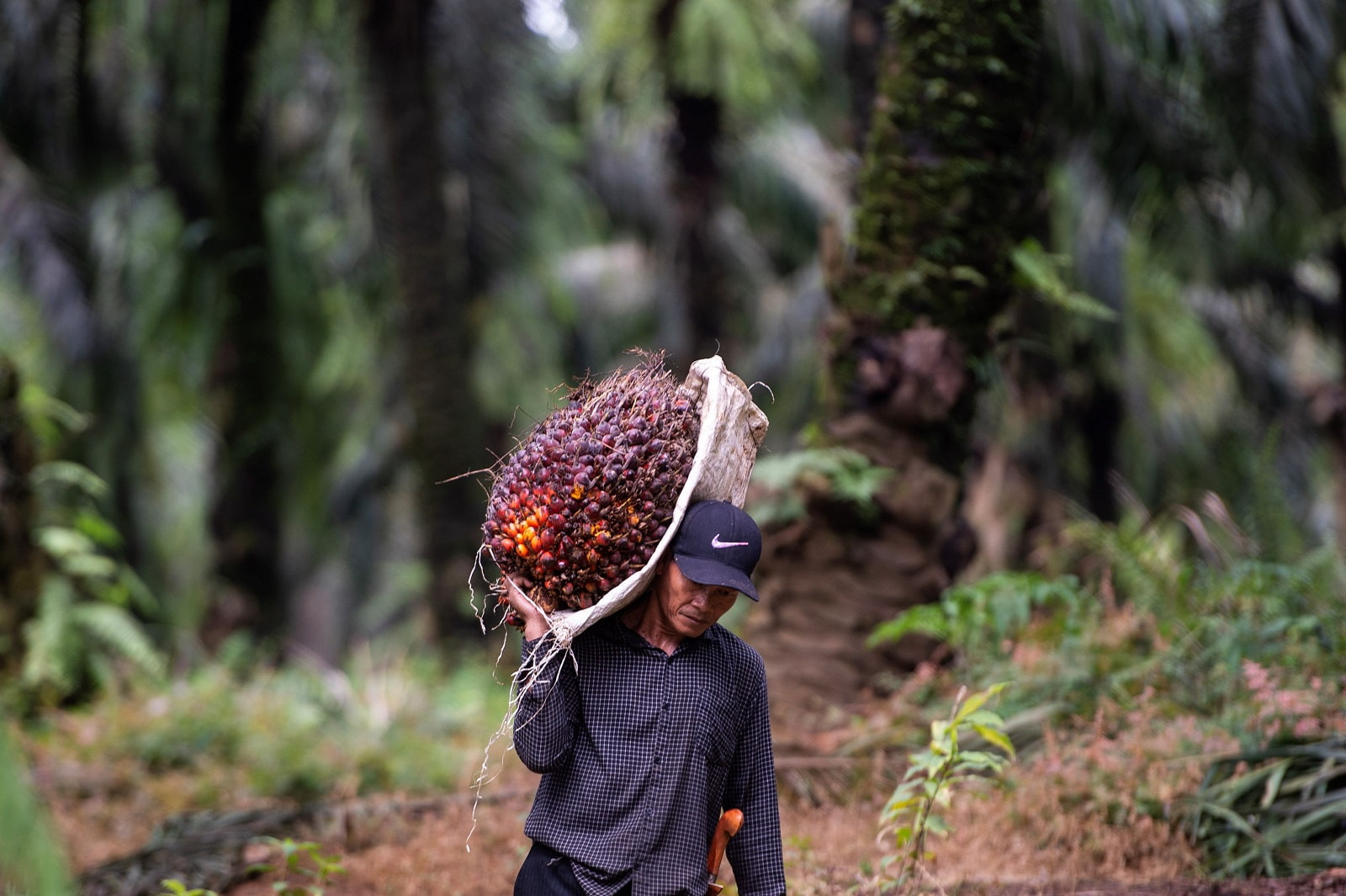Indonesia, the world’s largest palm oil producer, is once again at the centre of global energy and trade debates. The government has confirmed plans to advance its biodiesel program with a mandatory blend of either B50 (50% palm-based biodiesel) or B45 starting in 2026, though the final decision is still under review. This move reflects Jakarta’s ambition to reduce dependence on imported fossil fuels, strengthen domestic energy security, and support palm oil producers facing an increasingly volatile global market.
At home, biodiesel plays a dual role: as both a tool for energy resilience and a support for rural livelihoods. Indonesia imports around one million barrels of crude oil per day, with the total annual import bill for crude oil, refined fuels, and LPG reaching approximately Rp 500 trillion (around US$30 billion). This massive dependence strains the trade balance and makes the economy vulnerable to oil price shocks. Expanding biodiesel use could save billions in foreign exchange while providing a buffer against global volatility. Simultaneously, palm oil remains a backbone of the economy, employing more than 16 million people directly and indirectly. Ensuring stable domestic demand through biodiesel blending helps shield the sector from global downturns.
As the largest palm oil exporter, Jakarta’s biodiesel push has regional and global trade consequences.
Yet the road ahead is not without challenges. Moving rapidly to B50 risks straining supply chains and creating technical issues for engines unprepared for higher blends. Business groups have urged the government to consider B45 as a transitional step. Even in the existing B35 program, complaints have surfaced about clogged filters and higher maintenance costs. Without robust road testing and technological adaptation, the policy could generate pushback from transport operators and consumers.
The implications stretch beyond Indonesia’s borders. As the largest palm oil exporter, Jakarta’s biodiesel push has regional and global trade consequences. Diverting more crude palm oil (CPO) for domestic energy may tighten supply in export markets. While the government insists exports will remain strong, the balance between domestic energy use and foreign demand remains delicate. Europe, which recently granted Indonesia a quota of up to one million tons of duty-free CPO imports, will closely monitor these shifts. In India and China – both major buyers of Indonesian palm oil – any reduction in exports could raise prices and incentivise alternative suppliers such as Malaysia to expand market share.
Indonesia’s biodiesel strategy also intersects with ongoing disputes at the World Trade Organisation (WTO). The European Union has repeatedly challenged Jakarta’s palm oil policies, including export restrictions and sustainability standards, arguing that they distort global trade. By diverting more crude palm oil into domestic biodiesel, Indonesia risks fuelling further scrutiny from its trading partners, who may see the policy as protectionist. At the same time, Jakarta has consistently defended its right to manage natural resources for national development and climate goals. This tug-of-war at the WTO illustrates how Indonesia’s energy transition is not only an economic choice but also a test of how far developing nations can assert sovereignty in the global trade regime.
In parallel, competition is intensifying as advanced economies develop alternative vegetable oils for renewable energy. Australia, for example, has recently invested Rp12 trillion (US$725 million) in the expansion of canola and similar crops to challenge palm oil’s dominance as a bioenergy feedstock. This move highlights that Indonesia’s palm oil leadership will not go unchallenged, as the global race towards renewable fuels accelerates.
Indonesia’s biodiesel program is not just an energy policy – it is a strategic choice at the crossroads of domestic stability, regional competition, and global climate politics.
Geopolitically, biodiesel strengthens Indonesia’s position in the global energy transition. Unlike many developing economies dependent solely on imported fuels, Jakarta can leverage its vast palm oil base to argue for a “Southern model” of renewable energy, grounded in local resources. This model also plays into climate diplomacy. While palm oil remains controversial for its environmental footprint, Indonesia has pledged to expand certified sustainable plantations and curb deforestation. Success in aligning biodiesel expansion with sustainability goals would allow Jakarta to present itself as both a leader of the Global South and a responsible global actor.
In Southeast Asia, Indonesia’s policy creates a ripple effect. Malaysia, the second-largest palm oil producer, is watching closely, as its own biodiesel ambitions hinge on not losing competitiveness. Thailand, Vietnam, and the Philippines – net importers of palm oil – must adapt to potential price fluctuations. Beyond the region, biodiesel also interacts with EV policies. While China’s BYD and others are flooding ASEAN markets with affordable electric cars, Indonesia is pursuing a parallel path where palm oil fuels remain vital for trucks, ships, and aviation.
Ultimately, Indonesia’s biodiesel program is not just an energy policy – it is a strategic choice at the crossroads of domestic stability, regional competition, and global climate politics. It is a statement that Indonesia refuses to remain dependent on imported fossil fuels and instead seeks to harness its own natural resources to shape a different development trajectory. The policy embodies the government’s determination to secure long-term energy independence, stabilise rural livelihoods, and reinforce Indonesia’s bargaining power in international trade forums where palm oil and sustainability are often contested.
The success of B45 or B50 will depend on how well Jakarta balances technical feasibility, trade commitments, and sustainability goals in the years ahead. Rushed implementation risks undermining public confidence and international credibility, but careful management could transform Indonesia into both a regional energy stabiliser and a global standard-setter for biofuel innovation. If executed effectively, the policy will allow Indonesia to move beyond the image of being merely a palm oil superpower towards becoming a genuine renewable energy leader, capable of bridging economic growth with environmental responsibility and influencing the direction of the global energy transition.
